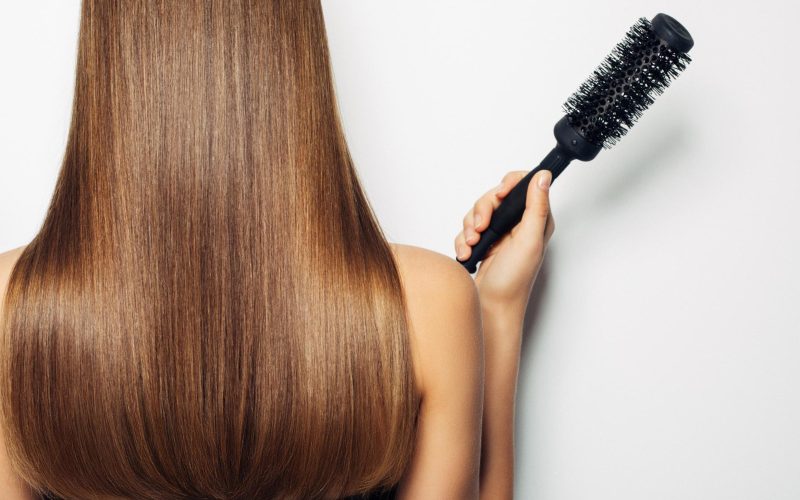Biotin, also known as vitamin H is a water-soluble vitamin that is part of the vitamin B family. The human body needs biotin to help with the conversion of certain nutrients into energy. Biotin also plays a vital role in the health of your skin, nails, and hair.
A person who isn’t getting enough intake of biotin will who have scaly red rash and loss of hair. Nevertheless, a biotin deficiency is rare, and in most cases, the food you eat provides enough biotin to cater for your daily needs.
Despite this, many people still choose to increase their intake of biotin to derive some additional health benefits. As you read further, you will find out the easiest ways to include biotin to your diet, what to look out for in a biotin supplement, the possible side effects of taking it in excess, and lots more.
What studies have to say about biotin and hair growth?
Keratin is an essential protein responsible for the growth of your skin, nails, and hair. It is, however, no secret that biotin improves the keratin infrastructure of your body. Asides this, reserves are yet to discover what other roles biotin plays in skincare or hair.
Available research on the effect of biotin on the healthy growth of hair is sparse. Up till date, there is minimal evidence to back up the claims that an increase in the intake of biotin will help promote the growth of hair.
For example, in a study carried out in 2015 in which women who suffered from thinning hair were each given an oral marine protein supplement (MPS) that contained both placebo and biotin twice daily for three months. Images of the affected areas of the scalp of these women were taken before the start of the treatment and at the completion of the treatment. Each participant also had their hair washed, and all shed hairs were counted.
The researcher found out that the women who took a MPS had a significant amount of hair growth in the parts that were affected by the loss of hair. After the washing of their hair, it was audio discovered that these women have less shedding.
The same researcher carried out similar research back in 2012, and the outcome was similar to the 2015 study result. After 90 to 180 days, the participants experienced an improvement in the quality and growth of their hair.
Daily recommended biotin intake
Because biotin deficiency is rare, the United States for and drug administration does not offer a daily recommended dietary allowance ( RDA).
RDAs usually varies based on an individual’s sex, age, and also the person’s overall health. There is, however, a dosage guideline recommended by experts. The guideline states that people aged 10 and above to consume between 30 and 100 mcg daily.
Infant and children are to consume:
- Newborn to three years of age: 10 to 20 micrograms (mcg)
- For to six years of age: 25 mcg
- From seven to ten years of age: 30 mcg
Women who are expecting a baby and already breastfeeding may require higher levels of biotin. Discuss with your doctor about what your recommended daily biotin intake should be.
Your doctor can easily provide guidance on how you can safely increase your daily dosage to get the maximum benefit. You can obtain your daily recommended biotin allowance from the foods you eat or by taking a prescribed biotin supplement.
Biotin-rich foods to eat
Chances that you are already getting all the recommended daily amount of biotin from the foods you eat are very high. However, if you feel the need to increase your daily intake, you can include some more foods that are rich in biotin to your diet.
Biotin-rich foods include; Mushrooms, cauliflower, egg yolk, organ meats like kidney and liver, Whole grains, bananas, nuts such as walnuts, peanuts, and almond nuts, soybeans and other legumes.
Heat can reduce the efficacy of biotin so opt for minimally-process or raw foods. The level of biotin content in different foods vary, so it is essential to read the nutritional information of these various foods whenever it is possible. Reading the nutritional information of foods before you buy them so you can select foods with high biotin content
Biotin supplement
If you do not feel like you’re getting the right amount of biotin from the food you eat, or if you are just in the mood to increase your intake, biotin supplement may be another option.
There are over the counter versions of biotin drugs available both in tablet and capsule form. Even though dietary supplements are being regulated by the United States food and drugs administration, it is very important to purchase your supplement from a trusted pharmacist and also carefully read the packaging before making the purchase.
Even though most people can take biotin supplements without experiencing any side effects, the chances of having minor side effects are possible. These small side effects include diarrhoea, nausea, and cramping.
Taking your biotin supplement with good might help to reduce your risk of side effects. Supplements are not recommended for everyone this out is important that you discuss with your doctor before buying or taking biotin supplements.
Your doctor will be able to tell you about the potential side effects and the right dosage recommended for you. Supplements come with dosage instruction that you can easily follow as well.
Other benefits of biotin
Even though more research is required to help ascertain the effect of biotin on hair growth, several other health benefits have been linked to biotin.
For example, it has been discovered that biotin is one of the essential B vitamins that aid digestion and metabolism. Biotin is responsible for the conversion of glucose derived from carbohydrate into energy, and it Assisi aids amino acids to carry out their normal bodily functions.
Biotin can also reduce inflammation, help people with diabetes with three lowering of their blood sugar, improve cognitive function, increase “good” HDL cholesterol and decrease “bad” LDL cholesterol.
Warnings and risks
There are no risks associated with adding more foods that are rich in biotin to your diet. However, you should ensure to always consult your doctor before including a new supplement to your daily routine.
Biotin has no known interactions, but it is still important that your doctor confirms supplement use alongside any other medication you will be taking.
Because biotin is a water-soluble vitamin, whatever excess of it you consume will be flushed out of the system with your urine. This makes any potential overdose very unlikely. If you experience any kind of rashes after increasing your intake of biotin, consult your doctor as it is a rare sign of biotin overdose.
You may not notice any results of hair growth or strength until you have taken biotin for several months. For the best result, maintain your increased intake of biotin rich foods for a long period and within the first three to four months you should notice significant changes.








